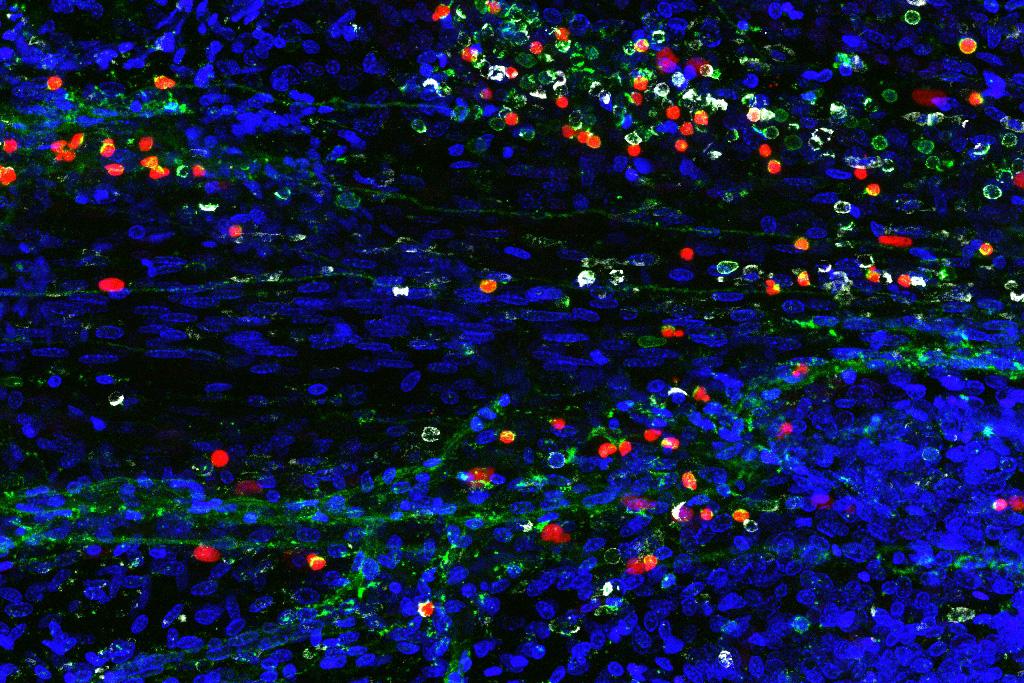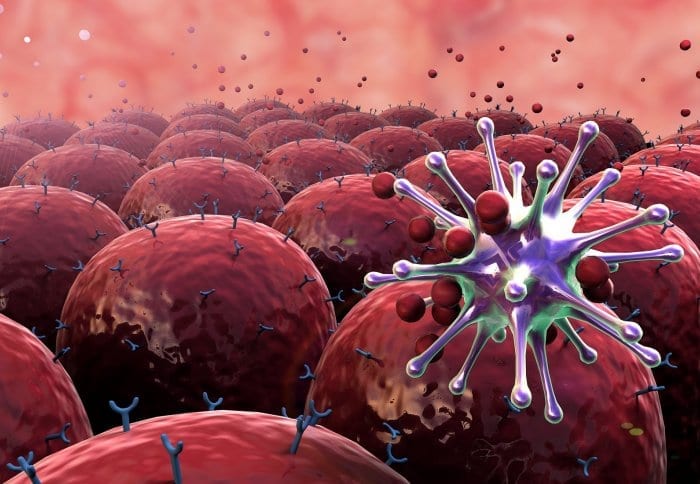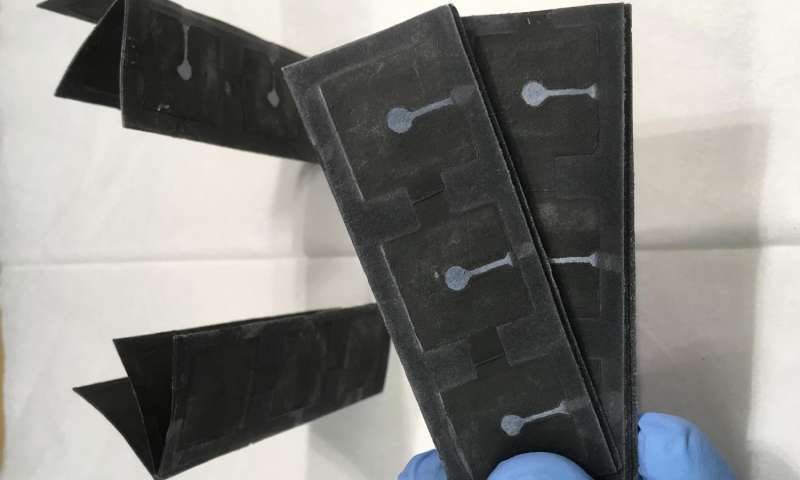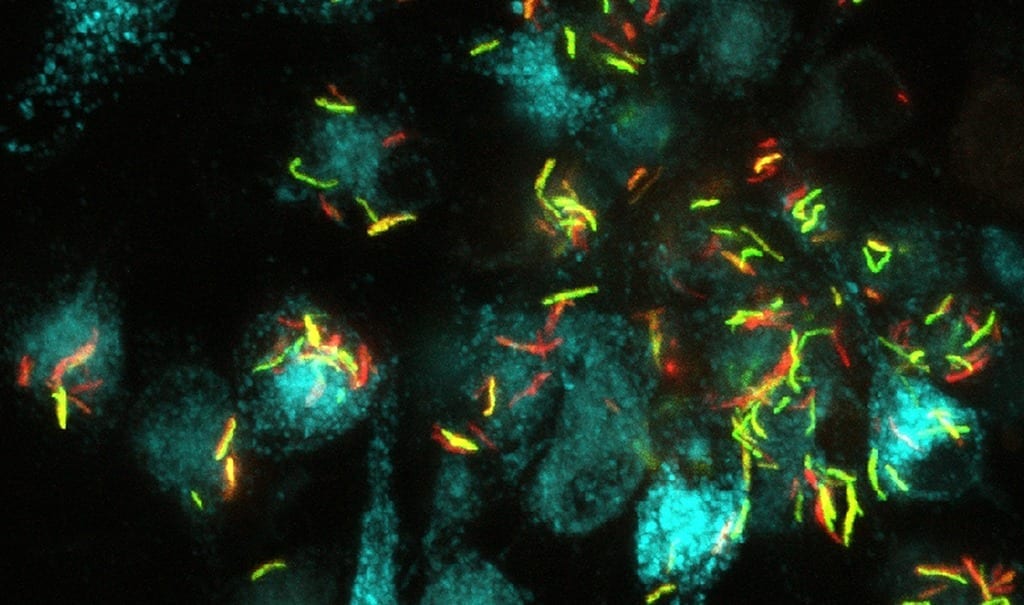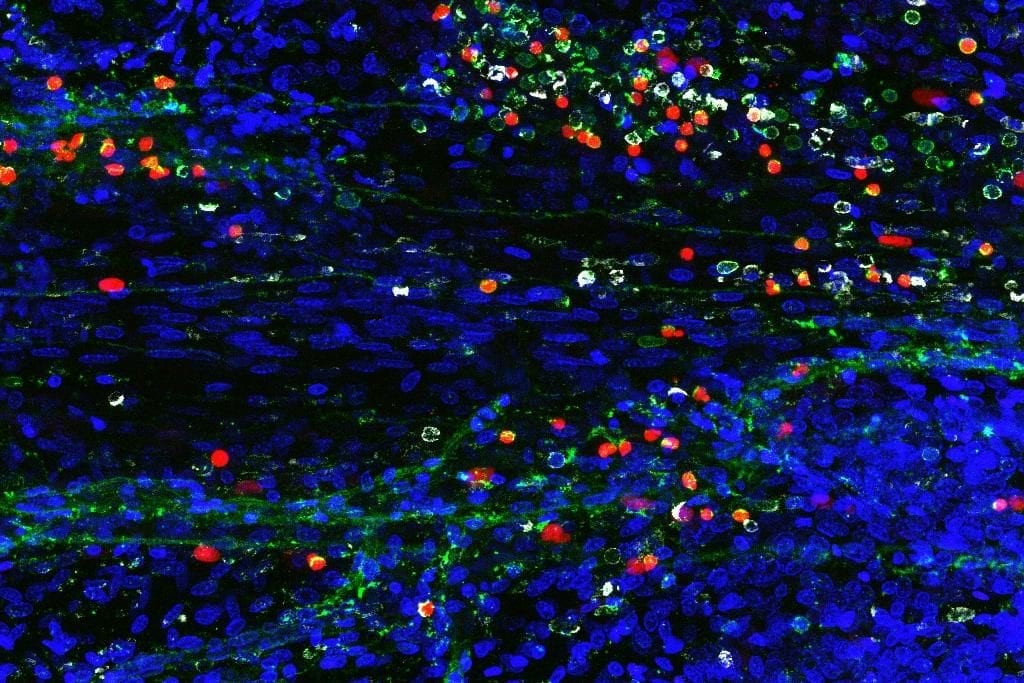
University of Virginia School of Medicine researchers have discovered a rare and powerful type of immune cell in the meninges around the brain, suggesting the cells may play a critical but previously unappreciated role in battling Alzheimer’s disease, multiple sclerosis, meningitis and other neurological diseases, in addition to supporting our healthy mental functioning. By harnessing the cells’ power, doctors may be able to develop new treatments for neurological diseases, traumatic brain injury and spinal cord injuries – even migraines.
Further, the researchers suspect the cells may be the missing link connecting the brain and the microbiota in our guts, a relationship already shown important in the development of Parkinson’s disease.
Unexpected Presence
The cells, known as “type 2 innate lymphocytes,” previously have been found in the gut, lungs and skin – the body’s barriers to disease. Their discovery in the meninges, the membranes surrounding the brain, comes as a surprise.
They were found as UVA researcher Jonathan Kipnis explored the implications of his lab’s game-changing discovery last year that the brain and the immune system are directly connected via vessels long thought not to exist.
niversity of Virginia School of Medicine researchers have discovered a rare and powerful type of immune cell in the meninges around the brain, suggesting the cells may play a critical but previously unappreciated role in battling Alzheimer’s disease, multiple sclerosis, meningitis and other neurological diseases, in addition to supporting our healthy mental functioning. By harnessing the cells’ power, doctors may be able to develop new treatments for neurological diseases, traumatic brain injury and spinal cord injuries – even migraines.
Further, the researchers suspect the cells may be the missing link connecting the brain and the microbiota in our guts, a relationship already shown important in the development of Parkinson’s disease.
Unexpected Presence
The cells, known as “type 2 innate lymphocytes,” previously have been found in the gut, lungs and skin – the body’s barriers to disease. Their discovery in the meninges, the membranes surrounding the brain, comes as a surprise.
They were found as UVA researcher Jonathan Kipnis explored the implications of his lab’s game-changing discovery last year that the brain and the immune system are directly connected via vessels long thought not to exist.
niversity of Virginia School of Medicine researchers have discovered a rare and powerful type of immune cell in the meninges around the brain, suggesting the cells may play a critical but previously unappreciated role in battling Alzheimer’s disease, multiple sclerosis, meningitis and other neurological diseases, in addition to supporting our healthy mental functioning. By harnessing the cells’ power, doctors may be able to develop new treatments for neurological diseases, traumatic brain injury and spinal cord injuries – even migraines.
Further, the researchers suspect the cells may be the missing link connecting the brain and the microbiota in our guts, a relationship already shown important in the development of Parkinson’s disease.
Unexpected Presence
The cells, known as “type 2 innate lymphocytes,” previously have been found in the gut, lungs and skin – the body’s barriers to disease. Their discovery in the meninges, the membranes surrounding the brain, comes as a surprise.
They were found as UVA researcher Jonathan Kipnis explored the implications of his lab’s game-changing discovery last year that the brain and the immune system are directly connected via vessels long thought not to exist.
“These cells are potentially the mediator between the gut and the brain. They are the main responder to microbiota changes in the gut. They may go from the gut to the brain, or they may just produce something that will impact those cells. But you see them in the gut and now you see them also in the brain,” Kipnis said. “We know the brain responds to things happening in the gut. Is it logical that these will be the cells that connect the two? Potentially. We don’t know that, but it very well could be.”
While much more research needs to be done to understand the role of these cells in the meninges, Gadani noted that it’s almost certain that the cells are important in a variety of neurological conditions.
“It would be inconceivable they’re not playing a role in migraines and certain conditions like that,” he said. “The long-term goal of this would be developing drugs for targeting these cells. I think it could be highly efficacious in migraine, multiple sclerosis and possibly other conditions.”
Learn more: UNKNOWN SOLDIERS: UVA DISCOVERS POWERFUL DEFENDERS OF THE BRAIN
[osd_subscribe categories=’immune-therapies’ placeholder=’Email Address’ button_text=’Subscribe Now for any new posts on the topic “IMMUNE THERAPIES”‘]
Receive an email update when we add a new IMMUNE THERAPIES article.
The Latest on: Type 2 innate lymphocytes
[google_news title=”” keyword=”type 2 innate lymphocytes” num_posts=”10″ blurb_length=”0″ show_thumb=”left”]
via Google News
The Latest on: Yype 2 innate lymphocytes
- Type 2 Diabeteson May 8, 2024 at 3:38 pm
Getting to know what’s going on in your body can help you manage type 2 diabetes well. It’s a chronic condition in which your body doesn’t use insulin properly. This causes sugar to build up ...
- Eledon Announces Clinical Progress with Tegoprubart in the Prevention of Transplant Rejectionon May 7, 2024 at 12:05 am
Aggregate mean estimated glomerular filtration rate (eGFR) – a measure of kidney function – measured above 60 mL/min/1.73m 2 at all ... and innate immune cell activation and function positions it as ...
- Study rethinks immune system strategies to boost vaccine effectivenesson April 28, 2024 at 9:52 pm
A recent Cell journal review explores key immunological assumptions to enhance our understanding of vaccine design, autoimmune responses, and immune system pathology, aiming to refine intervention ...
- Type 2 Diabetes: Etiology and Reversibilityon April 23, 2024 at 5:00 pm
Reversal of type 2 diabetes to normal metabolic control by either bariatric surgery or hypocaloric diet allows for the time sequence of underlying pathophysiologic mechanisms to be observed.
- Medications for Type 2 Diabeteson April 22, 2024 at 2:37 pm
Type 2 diabetes is a form of diabetes characterized by high blood sugar (glucose), insulin resistance, and a decrease in insulin production. For some people, type 2 diabetes can be managed with ...
- The best breakfast foods for type 2 diabeteson April 21, 2024 at 5:00 pm
Eating a nutritious and balanced breakfast is particularly important for people with type 2 diabetes. People can do this by choosing foods that offer essential nutrients, provide a steady release ...
- Type 2 diabetes genetically linked to breast, bowel and pancreatic canceron April 16, 2024 at 5:08 pm
Type 2 diabetes – which affects millions of Britons – shares genetic connections with breast, bowel and pancreatic cancer, scientists say. A new study showed how genetic variants, which are ...
- Type 2 Diabetes and Insulin: 10 Things You Should Knowon April 12, 2024 at 5:00 pm
Insulin can be used to help manage blood sugar in people with type 2 diabetes. Here are 10 things to know before starting insulin, including other management tools, types of insulin, and more.
- How to control and manage type 2 diabetes with and without medicationon April 11, 2024 at 5:00 pm
This article examines how to manage type 2 diabetes without medication. It also looks at the causes of type 2 and when people may need medication to manage the condition. A 2020 article reports ...
via Bing News







